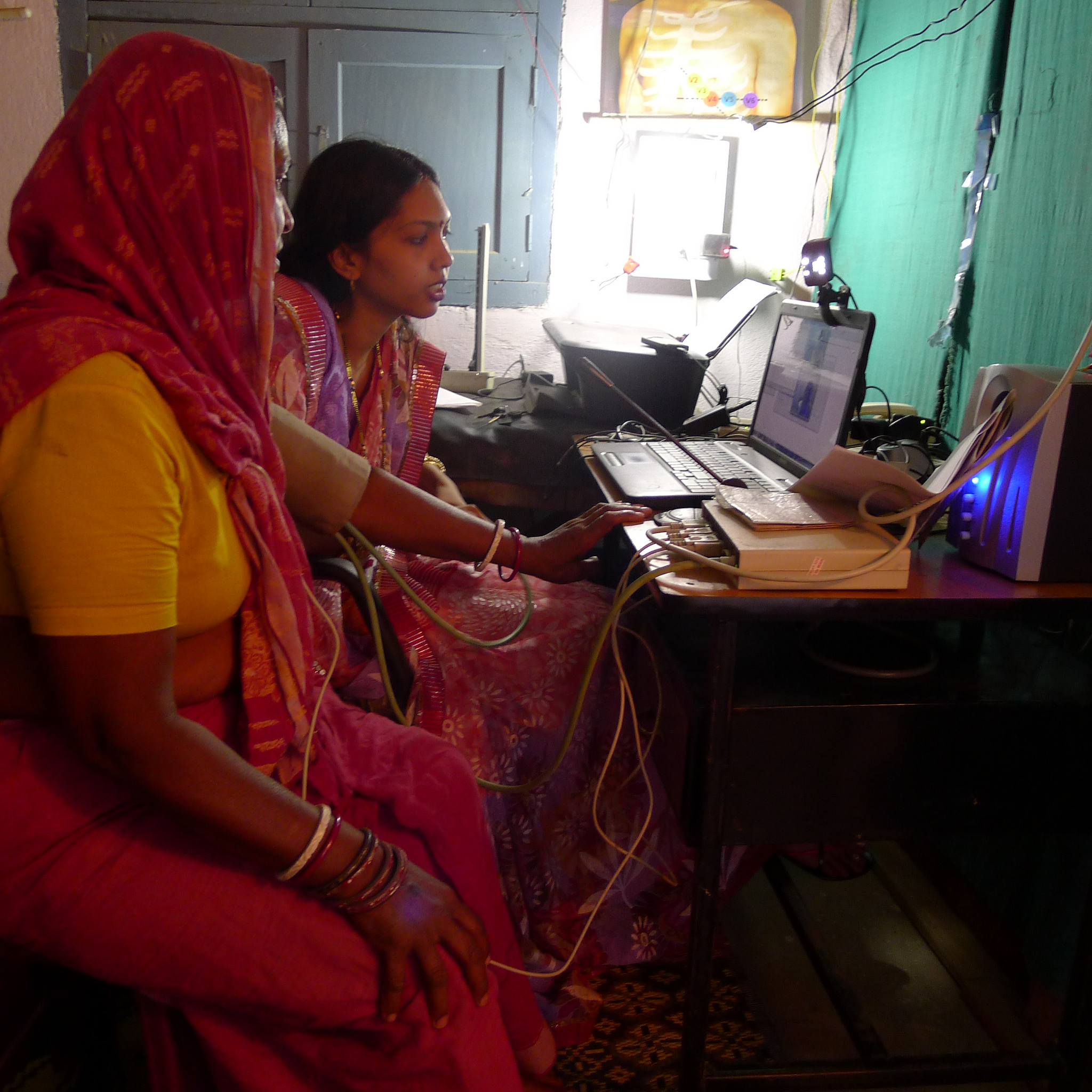Women make up the majority of students pursuing medical careers in Pakistan. For years, a government-imposed quota mandated that 80 percent of the seats at medical schools go to men, 20 percent to women.
 In 1991, the Supreme Court ruled the quota unconstitutional. Now, more than 80 percent of Pakistan’s medical students are women, compared to about 47 percent in the U.S.
In 1991, the Supreme Court ruled the quota unconstitutional. Now, more than 80 percent of Pakistan’s medical students are women, compared to about 47 percent in the U.S.
Instead of embarking on meaningful careers in medicine, however, all but 30 percent of these women become so-called “doctor brides.” Though they may wish to practice, cultural stigmas prevent them from entering the workforce after they’re married. To work outside the home is seen as shameful because it signifies the husband is unable to provide for his family.
An ambitious new venture called doctHERs wants to change that. By allowing the female medics to work from the comfort of their home, founder Asher Hasan, M.D. wants to ensure these women are doctors long after they’re brides. He has set up a telemedicine scheme to connect them to patients via the net. It’s particularly valued by women patients, who much prefer to see a woman doctor, especially when it comes to reproductive health.
Remote Areas
It’s not Hasan’s first foray into progressive medicine. In 2009, he founded Naya Jeevan—“new life” in Urdu—a nonprofit micro-health insurance program for the urban poor. It linked up with multinational corporations like Nestlé and local companies to offer insurance to low-income and contract workers, along with the corporation’s own senior staff’s domestic caretakers, like nannies and maids. Many of the beneficiaries work in the agriculture and manufacturing sectors, which the companies depend on—so they in turn benefit from a (literally) healthy supply chain.
The idea for doctHERs came when Hasan’s then pregnant co-founder and fellow medic Sara Saeed Khurram was looking for a way to take health care into remote areas, without “the burden of constant travel”.
In their next phase, doctHERs plans to conduct home visits. For now, patients have to come to local clinics to connect to the telemedicine system. In some areas, even that can be a challenge. Many of the communities doctHERs serves in southern Pakistan have migrated from the northwest, from lands like FATA (the federally administered tribal areas) and Khyber Pakhtunkhwa province. Both are close to the Afghan border and have suffered from floods and earthquakes, as well as from the Taliban insurgency and retaliatory strikes by the Pakistani military and US drones.
Many families from these areas have moved south to settle in urban slums and makeshift camps. “When we enter a community, the biggest barrier has been overcoming skepticism,” says Hasan. There is lots of paranoia about health care interventions.” (The CIA’s fake polio vaccination operation—launched some years back in an effort to uncover Osama Bin Laden and Al Qaeda—sowed the seeds of mistrust, which lasted years.) “People aren’t sure if they’re really being helped or spied on or who knows what.”
In response, says Hasan, “we identify the elders and key stakeholders and collaborate with them. We aren’t here to capture anyone or brainwash. We want to help. We ask community members, what’s the best way forward? A domino effect happens. We start in one part of a large slum and gradually trust is gained.”
It will take time to win trust and acceptance, but Hasan has every reason to hope that the program will take off—and that the skills and talent of all those ‘Doctor Brides’ can be put to good use where they are needed most.
[seperator style=”style1″]Disclosure[/seperator]
 Story written Cayte Bolser, an Unreasonable correspondent. Cayte collects stories and lessons from and for entrepreneurs dedicated to solving the world’s most pressing problems. She writes on a variety of subjects including science, technology, international development, the environment and travel.
Story written Cayte Bolser, an Unreasonable correspondent. Cayte collects stories and lessons from and for entrepreneurs dedicated to solving the world’s most pressing problems. She writes on a variety of subjects including science, technology, international development, the environment and travel.
This article originally appeared on Unreasonable.is and is reposted with permission.
Photo Credit: Flickr, Creative Commons











